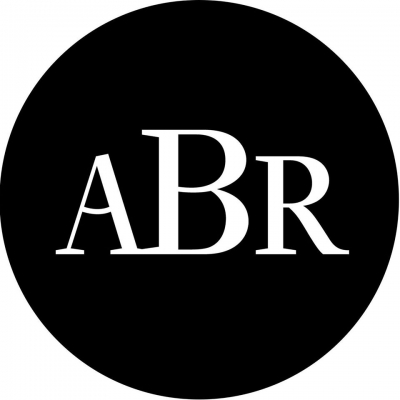Letters to the Editor
DIAMETRIC OPPOSITES
Dear Editor,
I concur with Daniel Thomas’s high opinion of the collection of Eva and Marc Besen and of their TarraWarra Museum, and share his admiration of the essays by Christopher Heathcote and Sarah Thomas in his review of Encounters with Australian Modern Art (February 2009).
...The past is in Scotland
Dear Editor,
Christina Hill’s review of Peter Goldsworthy’s latest novel, Everything I Knew (November 2008), seems sure-footed in both its negative assessment of an ‘overwrought, undisciplined’ work and its appreciation of the novel’s compositional play, both intricate and subversive, with L.P. Hartley’s The Go-Between. It makes no mention, however, of the novel’s pointed intrigue with lyricism.
... (read more)Do we need them?
Dear Editor,
Forgive me for taking advantage of the hospitality of your letters column to reflect on the matter of our national honours. Evidently some professions are better than others at nominating and supporting worthy candidates. If eminent writers and artists tend to go unacknowledged, to some degree we have only ourselves to blame for not taking more active steps to insure that a case is made through the Australian Honours Secretariat in Yarralumla. The procedure is relatively time-consuming, but all relevant particulars may be found at www.itsanhonour.gov.au. (I do not find the name of this website particularly reassuring.)
... (read more)Setting the record straight
... (read more)Dear Editor,
I have to write in support of your reviewer, Nicholas Brown, in expressing reservations about the speculative nature of much of the material in Susanna de Vries’s Desert Queen: The Many Lives and Loves of Daisy Bates (April 2008). I judge only by her treatment of Ernestine Hill (whom I knew very well as my mother’s cousin, and for whom I am literary executor). Since some people are proposing a biography of Ernestine, it is most important to set the record straight.
There was never any parallel between Ernestine’s pregnancy and that of the typical ‘girls’ of that period. An abortion was never even considered. She was delighted with her pregnancy and recorded that the birth of her son, Robert, was the ‘happiest day of my life’.
Not just another depressive
Dear Editor,
Barcroft Boake has suddenly become trendy, with a fictionalised (shudder) account of his life (Where the Dead Men Lie, by Hugh Capel) just published, as well as a Collected Works, Edited, With a Life, the review of which by Patrick Buckridge (July–August 2008) suggests that the old misconceptions about the poet, based on a biased account by A.G. Stephens, on which Clement Semmler based his biography, are in danger of achieving the status of fact.
Boake had a lot to be sad about. His much-loved mother died when he was thirteen; he had been apprenticed to a bankrupt who conned him out of a large inheritance; an employer neglected to pay him; and a couple of love affairs went bust. But to write him off as a depressive, with death his ‘single theme’, is to fly in the face of the reality I discovered when researching the biography that won the Walter Stone Award in 1986.
... (read more)Patrick Allington replies to John Carmody
Dear Editor,
I sort of but don’t exactly agree with John Carmody, who sort of but didn’t exactly agree with my mixed review of Tony Jones’s edition of The Best Australian Political Writing (May 2008). Carmody suggests that the anthology should have been called ‘Best Political Journalism’ because it ‘completely lacks’ academic writing or reflective essays. I agree that the book was journalism-heavy, but there’s nothing to be gained by overstatement. It also included a number of longer essays, the best of which were intelligent, learned, thought-provoking and impassioned.
... (read more)Patrick Allington (May 2008) astutely discerned an essential characteristic – I consider it a flaw – of The Best Australian Political Writing 2008, which was edited by Tony Jones of the ABC. He did not quite nail it down, however: I think that the book would have been better described as the ‘best’ political journalism because that, overwhelmingly, is what it really is (furthermore, it is exclusively print journalism). It completely lacks academic, or what one might term ‘reflective’, writing. That is part of the reason why, as Allington correctly insisted, some of the pieces are dated and, indeed, remain rather flat on the page.
... (read more)Lifting the flap
Dear Editor,
I had always believed that the only thing worse than a bad review was not to be reviewed at all, to be ignored. Now I find that there is something even more galling: to be reviewed by someone who is more concerned to air his and other peo ...
Defending Darleen Bungey
... (read more)Dear Editor,
To write the biography of an artist as prolific and complex as Arthur Boyd is an ambitious undertaking, as Ian Britain notes in his review of Darleen Bungey’s account (February 2008). Her book took seven years to research and write; it underwent considerable peer review.
As its commissioning editor, I was delighted by Bungey’s highly original, imaginative and evocative prose. If Britain prefers, as he states, ‘the austerities of Franz Philipp’s seminal study ... Janet McKenzie’s beautifully economical monograph ... the poised, elegant restraint of Brenda Niall’, then he is so patently lacking in sympathy with this endeavour that he is unlikely to be fair to its author. And he isn’t.
Calling for a revolution in higher education
Dear Editor,
In his victory speech on 24 November 2007, Kevin Rudd reaffirmed education as a key priority for the future of this country. We believe that a true education revolution must include a new wave of higher education reform - reform that will redress the imbalances that have characterised the sector of the last decade or more. Such reform should redirect resources back into the core university activities of teaching and research. We urge immediate attention and commitment to the following:
... (read more)

